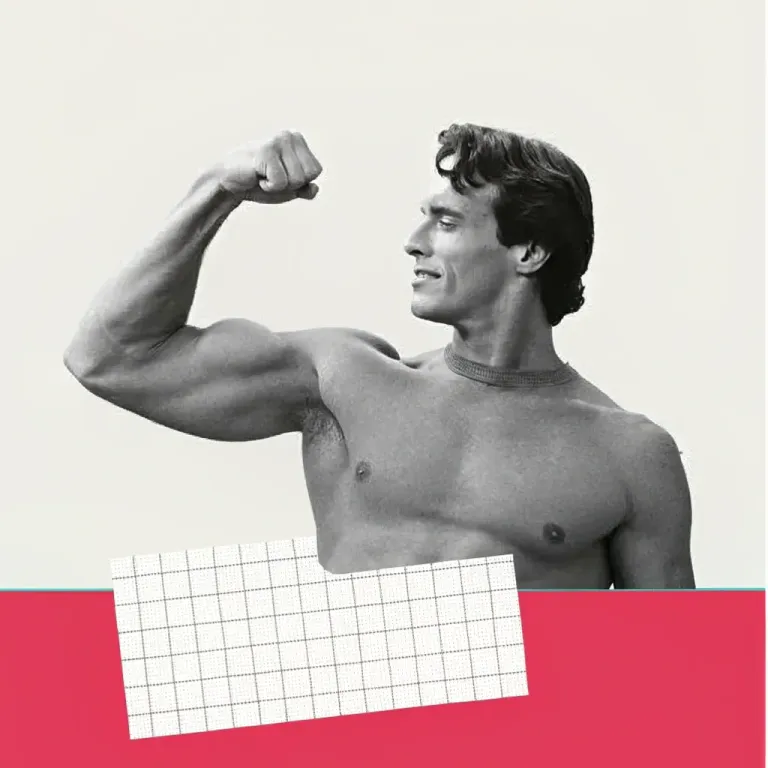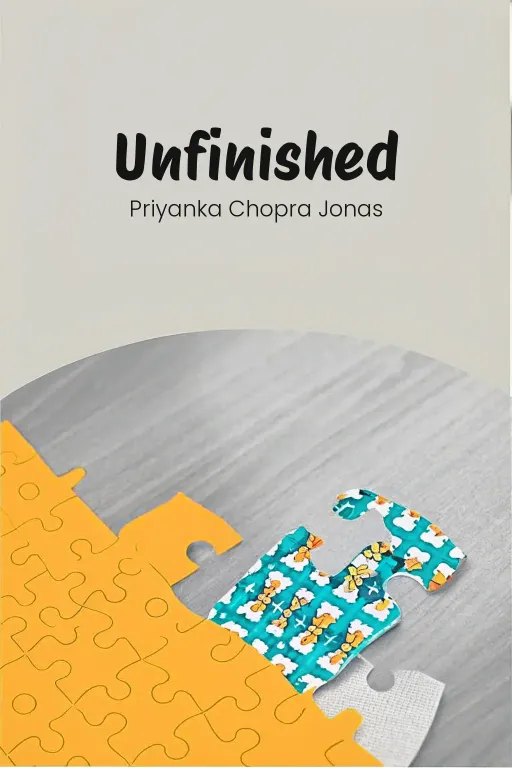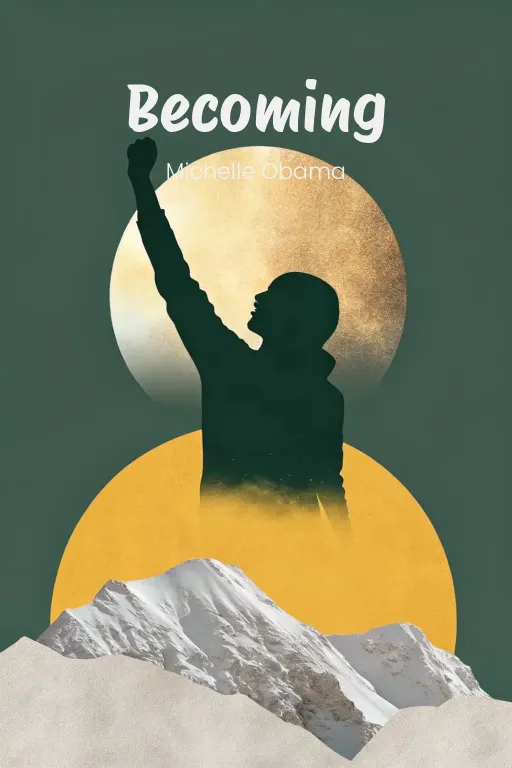
Be Useful: Hack Your Vision, Work & Impact
Podcast by Beta You with Alex and Michelle
Seven Tools for Life
Be Useful: Hack Your Vision, Work & Impact
Part 1
Alex: Hello everyone, and welcome! Today we're diving into something I think we all grapple with: living a life of purpose, fulfillment, and making a real impact. I mean, how often do you pause and really consider, "Am I truly living up to my potential?" Michelle: Exactly, Alex, and maybe even more importantly, how many of us even know where to begin? Life sometimes feels like an uphill battle, doesn't it? You're juggling dreams, bills, commitments, and it's like... where's the instruction manual? Today, though, we've got a guide that's pretty compelling. Alex: We do! We're going to be exploring Arnold Schwarzenegger’s “Be Useful: Seven Tools for Life.” It's such an inspiring and practical read. Arnold shares the core principles that shaped his journey from a small village in Austria to becoming a global icon in bodybuilding, Hollywood, and politics. It’s really packed with lessons on having a vision, working hard, being resilient, and, most importantly, finding purpose by serving others. Michelle: Exactly, there's more to it than just flexing muscles and iconic lines! We're talking about concrete strategies derived from his life—successes and failures—that anyone can use. And let's not forget, the guy reinvented himself… repeatedly. Bodybuilder, actor, governor? That’s a masterclass in reinvention. Alex: So here’s what we’re going to cover today. First, we'll talk about why having a bold vision is like having your own North Star—it guides you forward, no matter the obstacles. Then, we’ll get into the nitty-gritty—why hard work and adaptability are essential, especially when life throws you those inevitable curveballs. And, finally, we explore the real joy of giving back, because true success isn’t just about personal achievements, it’s about lifting others up. Michelle: Right, think of it as a three-course meal for your life: something that's both appealing, and something you can really chew on. A bold vision, relentless effort, and living for something beyond yourself. As usual, I’ll be around to see if these ideas actually hold water in the real world. Sound good? Let's dive in!
Vision and Ambitious Thinking
Part 2
Alex: Alright, let’s jump right in. We're talking about vision today – it’s really the bedrock, the absolute starting point for achieving anything significant. Arnold emphasizes this point very clearly in Be Useful: If you haven’t figured out where you want to go, how can you possibly begin? He often refers to his younger days in Austria, dreaming of America while looking at images of golden beaches and palm trees. Here's this kid in a small, cold town with no rational reason to believe he could ever reach Hollywood, yet his vision was so intense and persistent. Michelle: Yeah, Alex, but dreaming about beaches, that's one thing. Actually building a life there? That's a completely different story. Do you think people struggle more with imagining their goals, or with maintaining momentum between the dream and actually making it happen? Alex: It's a bit of both, actually. A lot of people don't even allow themselves to dream big, because they think it seems unrealistic, right? They get stuck in this idea of "realism." But what Arnold keeps saying is: your vision does not have to be complete to start. It can develop and change over time. Think about his journey. Bodybuilding wasn’t his ultimate goal. It was a stepping stone. He started broad: America! Success! Hollywood! Later, he narrowed his focus on bodybuilding as a first step. Michelle: Exactly. It’s like when he talks about meeting Joe Weider, the bodybuilding guru, who basically became his mentor. That meeting gave his vision structure, didn’t it? Arnold wasn’t just thinking, “I want to go to America.” He thought, “Bodybuilding could be my ticket there.” People often miss that essential link between dreaming and having an actual way to get there. Alex: Exactly! Schwarzenegger calls it “broad exploration with room for refinement”—you start with excitement, then you fill in the details along the way. And when you get that vision, you need to break it down into small, manageable actions. For Arnold, it meant early morning workouts, setting small goals like winning tournaments, and using those wins to work towards bigger goals. Michelle: Okay, let's dig a little deeper here. Imagine having a very motivating vision. But is it much harder for someone with a lot of constraints in their life, like a single parent working two jobs? “Start small” sounds nice, but how realistic is that when you're constantly just trying to survive? Alex: That is a good point. Arnold never really dismissed constraints; he overcame his own. His family was pretty poor, and his father was very strict. But he looked for small opportunities in his everyday life to move closer to his goals. So starting small could mean taking ten minutes to think about what you really want to achieve. It’s not about taking massive action right away, but more about being consistent. Michelle: I see, so visualize, plan, and then take small steps. But he goes beyond that too, doesn’t he? There's this mental part, where you believe in your vision so strongly that you can almost feel it. Arnold says, "Imagine it in detail," whether it's standing on the Mr. Olympia stage or practicing movie roles in his head. Isn't there an immersive visualization thing he calls it? Alex: Yes, that’s right. He didn't just imagine winning titles; he visualized every detail, like the feeling of the spotlight, the sound of applause, that rush of adrenaline. By the way, neuroscience backs this up. Studies have shown that imagining success activates the brain's neural pathways almost as if you were actually doing it. You are essentially programming yourself for results. Michelle: It seems like top athletes would be all over that. I mean, Tiger Woods supposedly visualizes every shot he takes, and Serena Williams apparently has a mental routine to stay focused during her matches. But what about the average person? Can visualization really help someone like Karen from HR when she wants to nail a presentation? Alex: Absolutely, Michelle. It's the same idea of detailed rehearsal, right? Karen could visualize herself presenting with confidence, imagining that she will answer any questions and seeing people react positively. It helps her mind feel more prepared and less stressed. Visualization isn’t just for athletes or celebrities – it’s for anyone who wants to turn potential into reality. Michelle: All right, Alex, let's change gears. Arnold cautions against thinking too small—and honestly, I felt that one. He cites research showing most people are unmotivated at work, stuck in a rut because they’re scared to push beyond their comfort zone. So, is fear the main reason people play it small? Or is it just easier to settle for less? Alex: I'd say it's a combination of both. Fear of failure is huge. People think, "If I aim high and fail, I'll look stupid." But Arnold reframes failure as just a consequence of ambition. Thinking small, though, that pretty much guarantees you'll stay stuck. And that frustration spills over into everything else - relationships, health, even how you feel about yourself. Michelle: That’s true. Plus, Arnold's experiences prove that there is a solution. When he started bodybuilding it was more of a small hobby than a big industry. But he had big ideas - winning not just one title, but seven Mr. Olympia competitions. That vision changed not only his life, but also the way the world looked at bodybuilding. Alex: And if he had thought smaller, none of that would have happened. He wasn't just after winning awards; he was trying to create a platform for change, like when he became an actor and then a politician. Every step was built on the last, in line with how he saw his role evolving at a wider level. Michelle: Alright, so a strong vision cuts through both doubt and mediocrity. But I think the main point here is vision isn’t fixed. It changes as you change. What Arnold pictured as a young man in Austria grew into far more than just "going to America." Vision evolves with you – in fact, it should evolve with you. Alex: Yes, absolutely, Michelle. And that gets to the heart of Schwarzenegger's first principle: A compelling vision is what drives everything else. It inspires action, builds resilience, and—when executed well—transforms not only your life but also the ones around you.
Hard Work and Adaptability
Part 3
Alex: Very clever, Michelle. But you’re absolutely right. I mean, vision sets the direction, but hard work, well, that’s the engine that actually “gets” you there. Just look at Arnold. His whole career is basically a masterclass in that. Take bodybuilding, for example. He didn’t just work hard; he redefined what hard work “meant”. I'm talking about lifting up to 40,000 pounds a day in training. No typo there! It’s easy to think "showing up" is enough. But Arnold reminds us it's about deliberate, intense effort. Michelle: Forty thousand pounds… It’s such a huge number, it almost seems unreal. But what’s so fascinating is how calculated it was. Every single rep had a purpose, right? It wasn’t just about lifting; it was about carefully sculpting his future. He even had a phrase for it: "pain with a purpose.” Alex: Exactly! And this wasn't just in the gym. Think about his move to Hollywood. He had the accent, the muscles, studios didn’t really know what to do with him. He wasn't the typical leading man. Some people told him point-blank he’d never make it. Did he give up? Nope. He dedicated over five hours “daily” to improving everything—his speech, his acting. He worked with diction coaches, refined his movements... Remember the shotgun-cocking flip in Terminator 2? Iconic, right? Hours and hours of practice and bloodied knuckles– all for like, two seconds of screen time! Now, that's commitment. The details matter, you know? Michelle: Two seconds! I think that perfectly illustrates the power of real focus, Alex. He could have just phoned it in, right? A lot of us settle for "good enough." But he understood that excellence isn’t about cutting corners. It’s about going the extra mile, even when nobody's watching. Alex: Precisely. And he took that approach to everything. Later, when he ran for governor, he didn't just rely on his celebrity. He dove deep into policy, studied renewable energy, education, talked to experts. He became a student of the issues. Proving that hard work isn't just about brawn. It's the universal path to success, whatever you're doing. Michelle: Okay, I’m sold on the importance of hard work. But… life happens. What happens when things go sideways? What's the plan when all that hard work hits a wall? Alex: Well, that’s where adaptability comes in, Michelle. Arnold's clear about this: adaptability is just as important, maybe even “more” important, than sheer effort. You have to be able to pivot without losing momentum. Think about the COVID-19 pandemic, for example. Total chaos, especially in healthcare. Did Arnold just sit on the sidelines? No way. He used his connections-- from his time as governor-- to get PPE for frontline workers. He even donated a million dollars. That's adaptability: seeing a problem, shifting gears, and getting resources to the right place. Michelle: Yeah, and to me, his adaptability is more than just reacting to crises. It’s part of his DNA. Back in his bodybuilding days, he didn’t win everything right away. He failed. And what did he do? Adapted. He took notes, studied his rivals, figured out where he was falling short, and tweaked his strategy for the next competition. It's almost a clinical approach. He turns setbacks into learning opportunities. Alex: Exactly! There’s a great quote in his book: “Failure isn’t the opposite of success; it’s part of success.” And that’s something we can all use. Whether it’s a bad presentation, a project that stalls out, even personal disappointments… if you can see those moments as temporary “and” actionable, you’ll be able to bounce back and grow. Michelle: And you know, another aspect of his adaptability that I admire is his willingness to learn from others. He never acted like he knew it all. Joe Weider mentored him in bodybuilding, directors like James Cameron guided him in Hollywood, and he worked with advisors from both parties when he was governor. He was always surrounded by people who were smarter or more experienced, in specific areas. I think that greatly amplified his capacity to adapt effectively in different situations. Alex: Such a great point, Michelle. It ties perfectly into his emphasis on repetition and learning. Think about it – at the gym, in meetings, on set, repetition helps us hone our skills and get feedback. It's not just about doing; it's about doing it “better” each time. Michelle: Alright, alright, hard work and adaptability sound amazing… in theory. But how do you avoid burnout? I mean, we're talking about Herculean effort here. How can anyone realistically sustain that kind of pace? Alex: That's a very important question, Michelle. And Arnold actually addresses it; he knows that the hustle needs balance. His key is to reframe sacrifices into being short-term investments for long-term rewards. Those intense workouts, the diction sessions—they weren’t endless. He set boundaries so the payoff wouldn’t come at the total expense of his health or personal life. He made sure rest was as deliberate as his workouts. Michelle: Which says a lot about the mental side of hard work. It’s not just physical effort; it’s emotional endurance too. Arnold seems to have figured out this mindset of, “The pain is temporary; what you achieve lasts.” Alex: Exactly! And he goes further; he sees adversity “itself” as an opportunity. Whether it’s a failed audition or a political setback, every curveball becomes fuel forward. He chooses to see those moments as opportunities to grow. And “that’s” the essence of resilience. Michelle: So, let's wrap this up. Hard work sets the foundation for success, but adaptability keeps it all together. You can't really have one without the other, can you? Alex: Precisely. Hard work is what gets you started, but adaptability ensures you stay on track, regardless of what comes your way. So, if we only take away one lesson from Arnold, it's that hard work combined with flexibility is a recipe for real transformation, you know?
Giving Back and Community Impact
Part 4
Alex: So, Michelle, we've been talking about Arnold's big vision and relentless effort, but there's something else that's really key here. It’s more than just individual work. It’s about the impact on others, right? Arnold says, "Success isn’t complete until it extends beyond you." It’s not just about “your” win, but making others feel like they've won too. Michelle: Exactly! And you know, that's what I wanted to get into—giving back and community impact. So it's not just about striving for personal success, but how you can use that success to lift others up, right? Real success is when you can leave a legacy of collective well-being. Michelle: Okay, but here's the thing. It's easy to say "give back," but how do you actually do it? I think that's where people get stuck. It can feel so overwhelming! So where does Arnold land on this? How does he make that practical and meaningful? Alex: Right, it's a valid question. Arnold doesn't just throw around the idea of altruism. He really breaks it down into ways that are actually doable. He believes that giving doesn’t have to be this grand, elaborate thing, especially to start. It’s about starting small, creating momentum. Things like volunteering an hour a week, mentoring someone, or supporting a local cause that speaks to you. In his view, generosity grows little by little—lighting a candle that gradually spreads illumination. Michelle: That's right, small consistent actions. But, you know what I find really fascinating, and uniquely Arnold? He links generosity to our biology! He writes about the "helper's high," that burst of happiness you feel when you make a difference. And guess what? Science backs that up! Helping others releases oxytocin and endorphins. So giving isn't just good for others; it actually rewires your brain to feel good, too. It's selfishly selfless, in a way. Alex: Absolutely, I get that! And that connection to our biology kind of debunks this idea that giving is just a chore or an obligation. Arnold really gets into how these small acts of giving can align with our own neurochemistry to help us grow into compassionate, more engaged people. Think about it: Tutoring a student or helping a neighbor brings a satisfaction that goes way beyond material success. You feel valued because you’re making someone else feel valued. Michelle: Right, so a shot of oxytocin and a better world, it’s a win-win. But let's switch gears for a moment. I want to talk about how Arnold scaled this philosophy into something massive. I mean, the Special Olympics, for example. That's not just writing a check, is it? He got really hands-on and helped create meaningful change. Alex: Exactly! Arnold's involvement wasn't just symbolic. He embedded himself in the movement. His passion for fitness meshed perfectly with his dedication to inclusion. Remember when he introduced powerlifting into the event? That gave athletes with intellectual and physical challenges the chance to compete and really discover their own abilities. It wasn't just about lifting weights. It was about lifting their confidence and their sense of self-worth. Michelle: And the impact of that is huge! By advocating for their inclusion and creating opportunities for them to show what they could do, Arnold really redefined their narrative. These athletes weren't seen as limited but as symbols of what's possible when you have the right opportunities. That's major. But how do we ensure these initiatives become systematic change and not just isolated stories? Alex: Gotcha, that's where Arnold’s overall philosophy comes in. He makes sure every act of giving is scalable. Take the Special Olympics. His work went beyond just what happened on the field. He pushed for their inclusion on bigger, international platforms. This created more visibility, more respect, and of course, more funding. That's the systematic approach that turns a single act into a long-lasting impact. Michelle: Right, and speaking of scale, we can’t forget the Inner-City Games. I think that's a great picture of how giving back can transform not just individual lives, but whole communities. It wasn't just Arnold swooping in to fund some sports programs, right? He built something fundamental—places where kids from underserved communities could safely channel their energy through sports, arts, and everything else. Alex: Exactly, Michelle. It wasn't just about keeping kids off the streets, even though that was key. The Inner-City Games were designed to unlock their potential, too. To give these kids the resources they needed to discover talents they didn't even know they had. I remember this one story about a young boy who started in the program to play sports, but over time, he discovered he was passionate about public speaking and leadership. And by his late teens, he was advocating for youth programs in his community. That's the snowball effect you get when you create spaces like that—one positive outcome leads to another and another, multiplying the impact. Michelle: Okay, I’m still thinking over the fact that Arnold had this platform, these resources. For some people, “giving back” can feel tied to privilege. It's easy to donate a million dollars when you “have” a million dollars. So, what does his message mean for the average listener today who doesn't have tons of money or influence? Alex: Sure, Arnold addresses that by emphasizing small, consistent steps. He always says giving isn’t about resources—it’s about being resourceful. Sometimes, just investing your time or skills can be just as impactful. Things like volunteering at a shelter, mentoring a younger colleague, or even organizing a neighborhood clean-up might seem small, but collectively, those acts have exponential power. Michelle: I hear you, like the daily reps of generosity—small but consistent. And I keep thinking about his metaphor of "breaking your mirrors." That's deep, right? It's not about staring at your reflection, obsessing over “your” own issues; it's about looking outward into the community. It’s about seeing the people around you who need help, you know? Alex: And the story that really drives this point home is Arnold's experience with the California firefighters during the wildfires. These people were risking their lives, saving homes and people, even when their “own” homes were burning. Arnold was so moved by their selflessness. They really embodied "breaking the mirrors"—putting the collective good above individual gain. Michelle: That's a powerful lesson. And in this world that focuses so much on individual achievement, framing your self-worth around community impact feels really refreshing. Alex: Exactly! That's why the phrase “break your mirrors” is more than just a catchy saying. It’s a call to action. It asks us to redefine what success really means. Because at the end of the day, true fulfillment doesn’t come from trophies or titles. It comes from knowing you've left the world, or even just one person's world, a little better than you found it. Michelle: Alright, I’ve got to give it to Arnold—this is more than just a philosophy. It’s wisdom earned through action. Small acts, big systems, and a shift in perspective, all aimed at building a legacy that's bigger than yourself.
Conclusion
Part 5
Alex: So, to bring it all together, we've really dug into some transformative ideas from Arnold Schwarzenegger's “Be Useful”, right? It all starts with having that bold, clear vision – your personal North Star – that guides all your actions and choices. Then, it’s about hard work and being adaptable, the tools you use to actually make that vision real, no matter what life throws your way. Michelle: Right, and you know, none of it "really" matters, does it, unless it goes beyond just you. Arnold’s idea of "breaking your mirrors" – I like that image – it's about shifting your focus outwards, lifting up your community, and leaving something that lasts. Whether it’s small acts of kindness or something bigger, it’s about finding meaning through connection and helping others. Alex: Exactly! At its heart, Arnold’s message is pretty straightforward: success is a process of envisioning, working hard, adapting as you go, and ultimately, giving back. And the big takeaway for everyone is, don't wait for the perfect moment, the perfect plan, or all the resources to magically appear. Start small, stay consistent, and think bigger than just yourself. Michelle: Yeah, I think that's right, Alex. It's about visualizing those goals, taking action, or just offering a hand to someone who needs it. It's all about moving the needle, personally and for everyone around you. So, ask yourself, "How can I actually be useful today, even in a small way?” Alex: That's the challenge we're leaving you with—go out there, dream big—fearlessly!—work strategically, and always remember that true success is measured by the positive impact you create.









